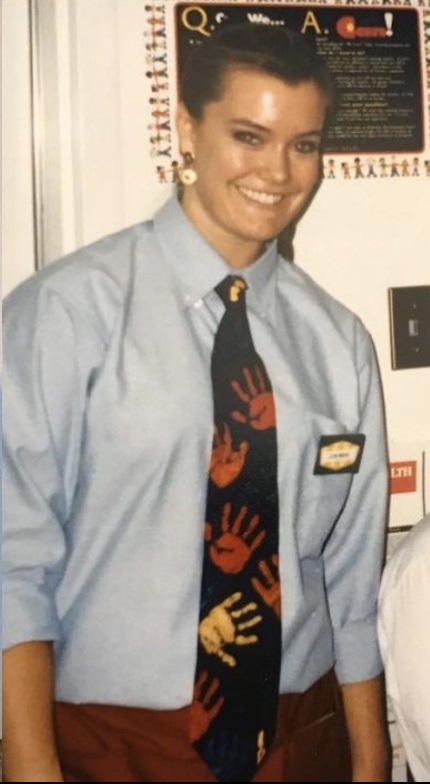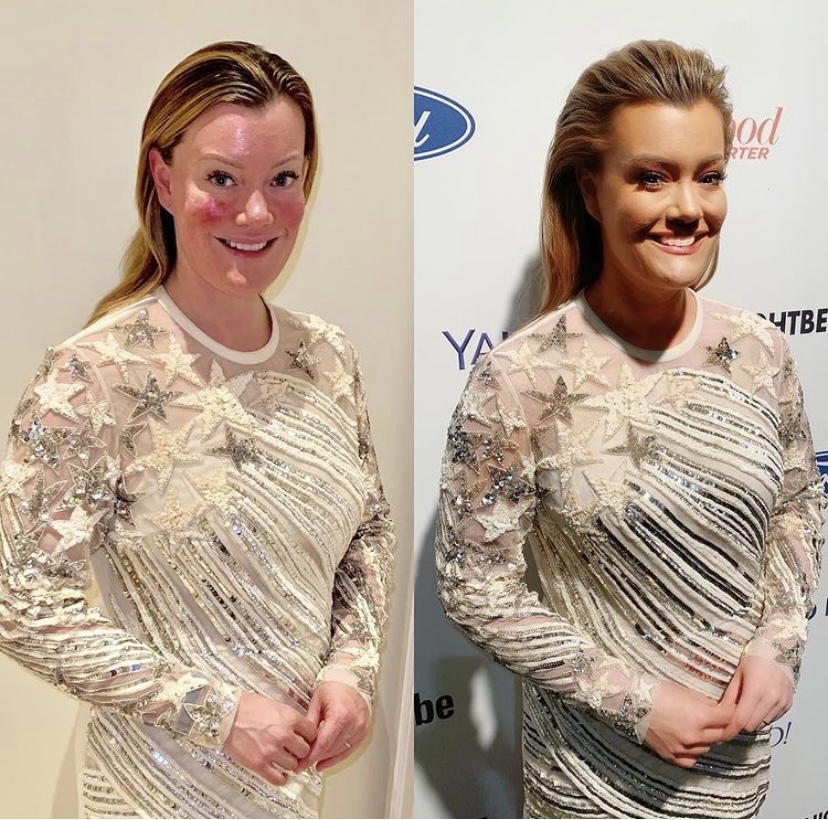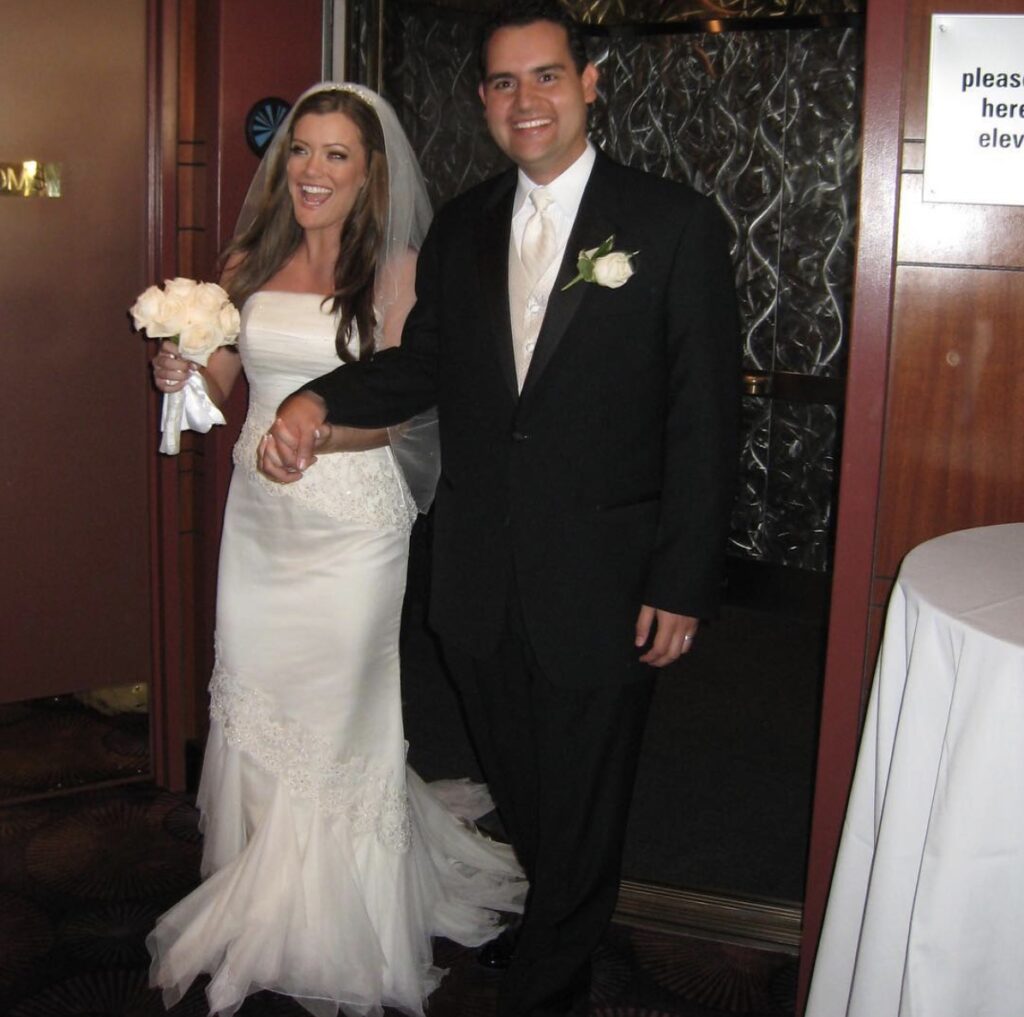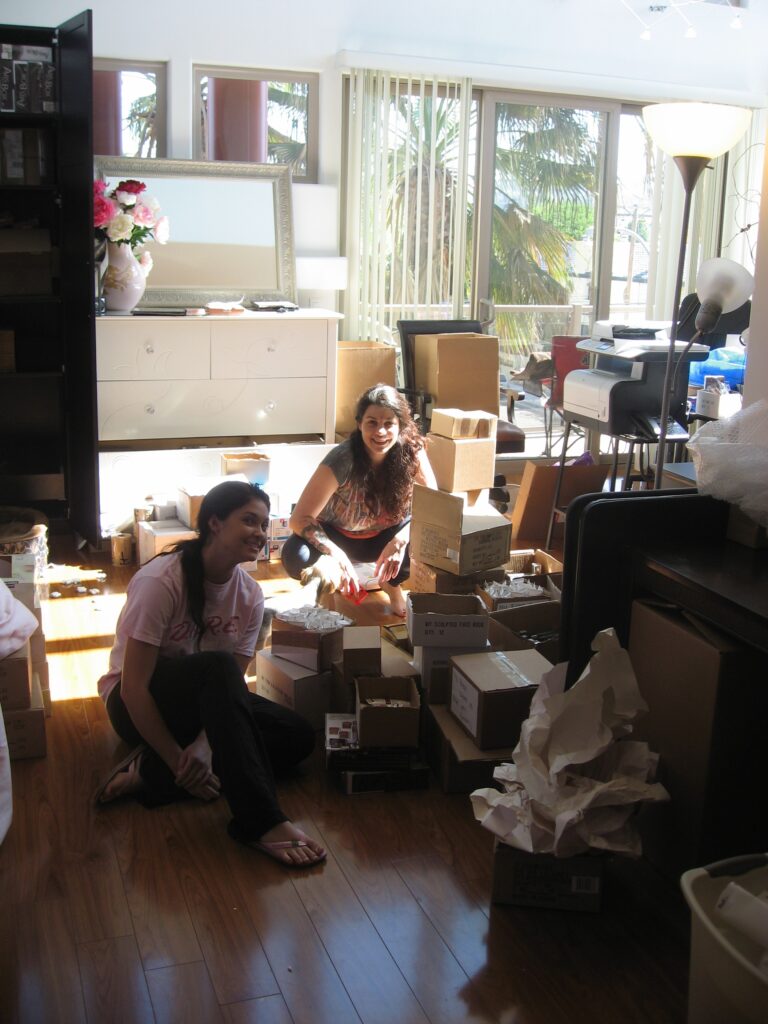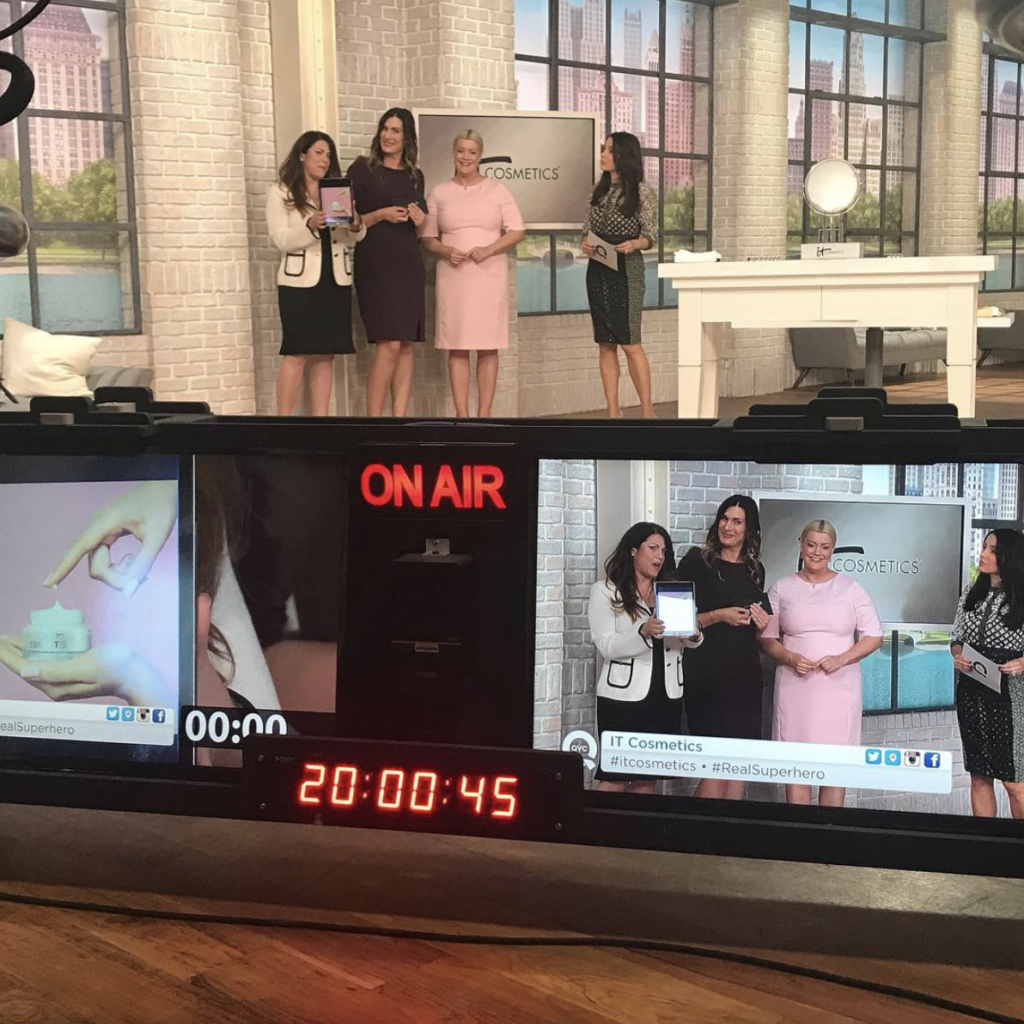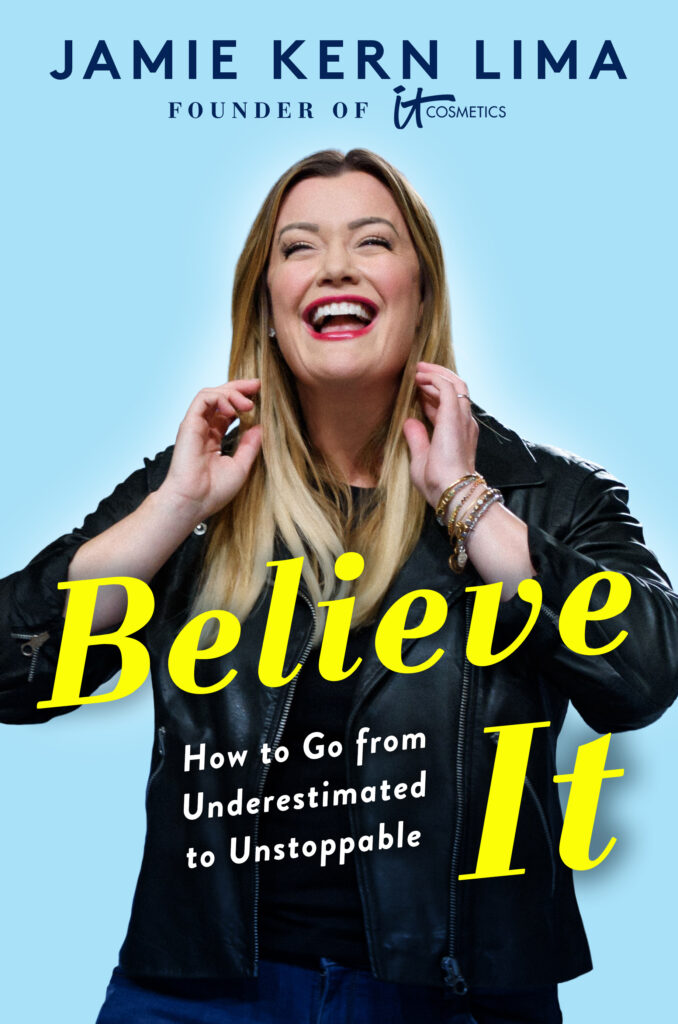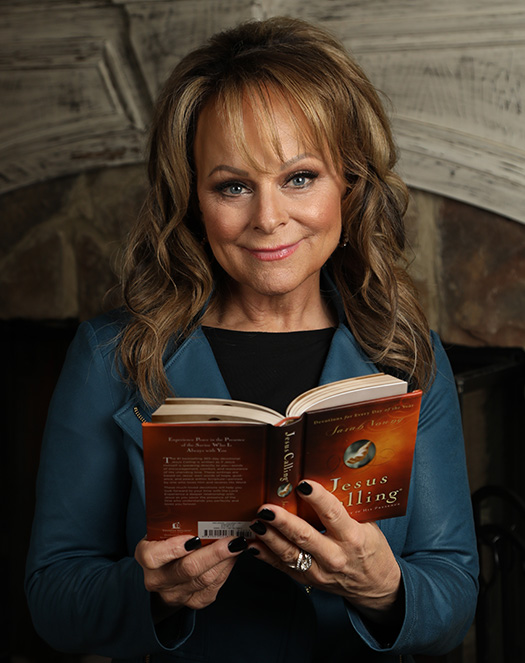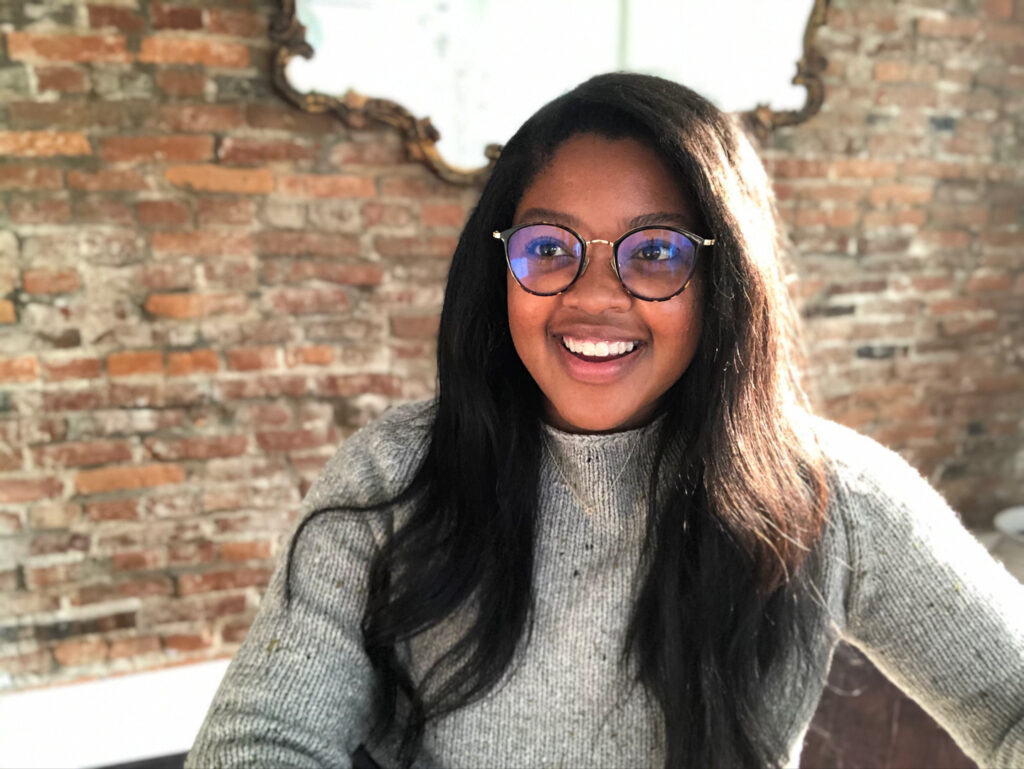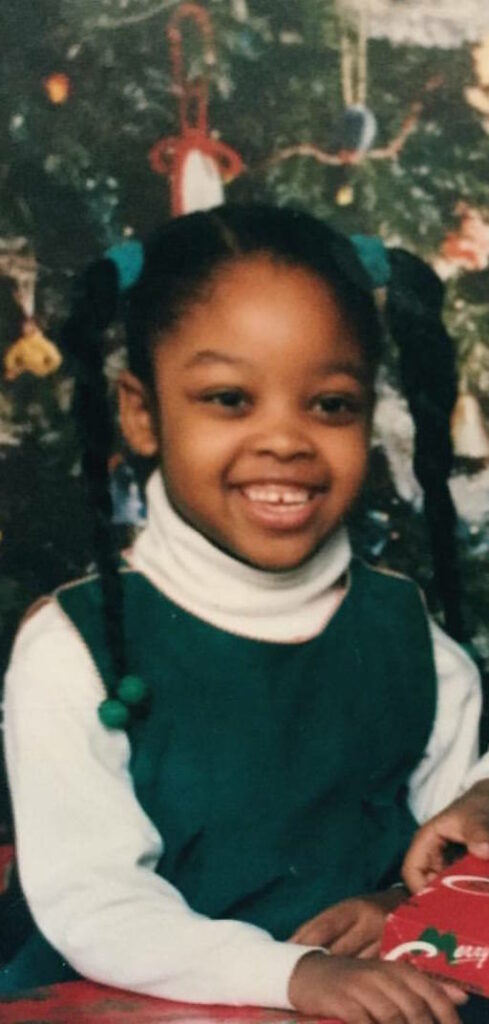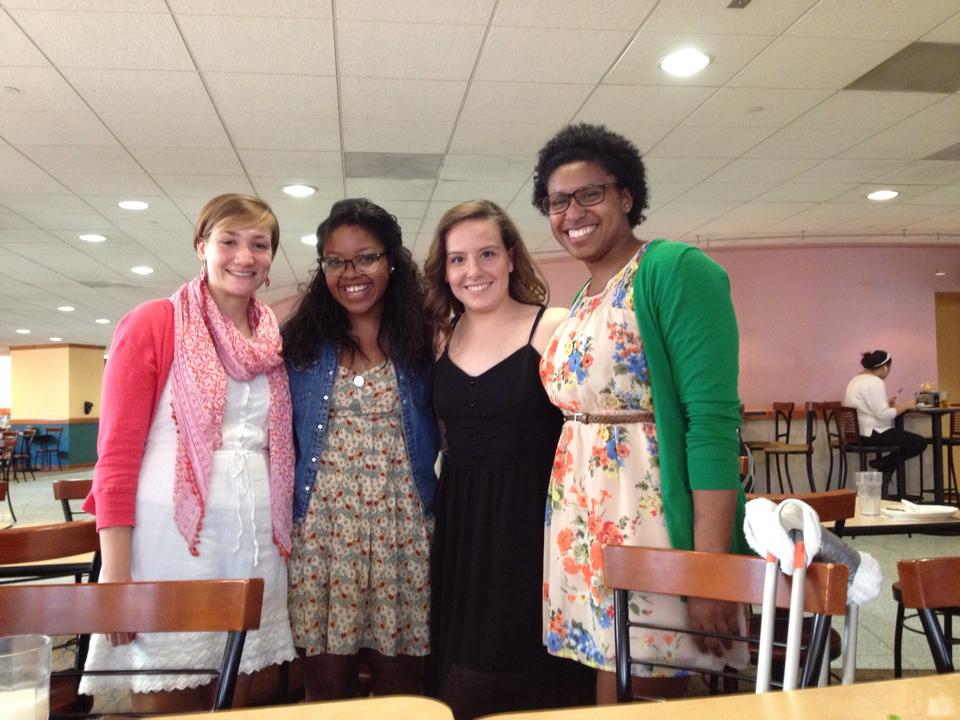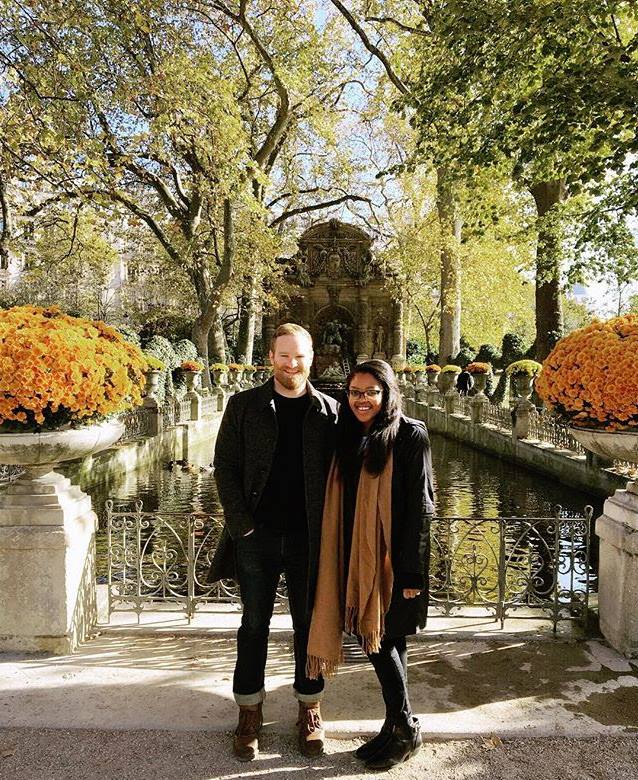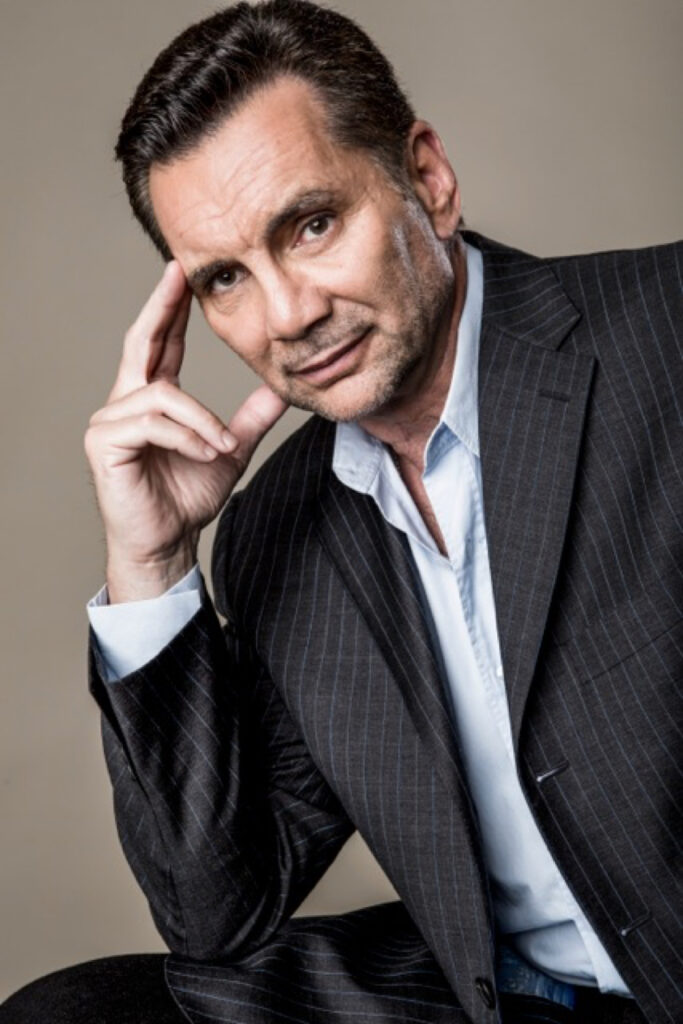Jesus Listens to Our Doubts: Jamie Kern Lima & Cole Arthur Riley
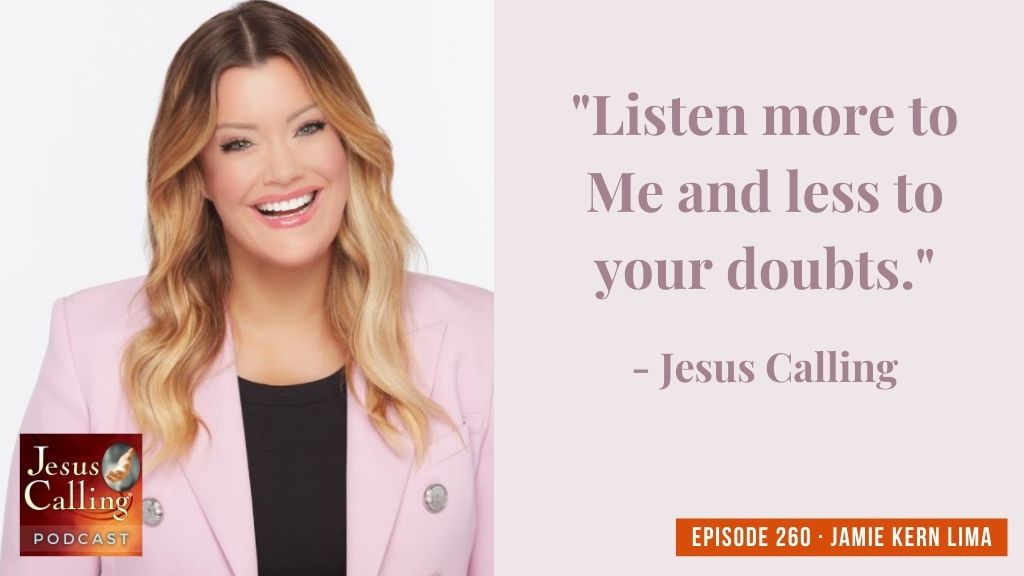
Jamie Kern Lima: Sometimes we pray, but then we still doubt. For many years, every time I would pray, if I was praying for the health of a friend or whatever it was, I would literally end my prayer by saying, “God, by the way, if you could please prove me wrong because I’m doubting that You exist, I’d really appreciate it if You’d prove me wrong beyond a shadow of a doubt. In Jesus’ name. Amen.” Like, I would literally end my prayers that way in my head. And He did. And He has. And He continues to do that.
Jesus Listens to Our Doubts: Jamie Kern Lima & Cole Arthur Riley – Episode #260
Narrator: Welcome to the Jesus Calling Podcast. Every Christian faces a time in their relationship with Jesus that can be frustrating, full of questions, full of doubt, full of wondering if God is even real, if He cares, or if He listens. But time and time again, the Lord has proven that He does hear our every prayer, as Psalm 66:19 reminds us: “God has surely listened and has heard my prayer.” God is also okay with our doubts—He gives us the space we need to figure out for ourselves that He is good, all the time, and He will be with us always.
This week’s guests are two dreamers—the founder of IT Cosmetics, the largest luxury makeup company in the country, Jamie Kern Lima, who faced years of trials and doubt but managed to find a way to keep the faith, and God rewarded her with the breakthrough she’d always been longing for. And the creator of Black Liturgies, Cole Arthur Riley, a born skeptic who educated herself on a variety of religions before finding a home in the Christian church that held space for her questions.
First up, let’s hear Jamie’s story.
Jamie: My name is Jamie Kern Lima. I am probably most well-known as the founder of IT Cosmetics, a company I started in my living room that led through three years of crazy rejection. I eventually built it to what it is now, the largest luxury makeup company in the country. I’m also the author of the brand new book, Believe It, which is all about how to go from underestimated to unstoppable, all about how to overcome self-doubt, body doubt, God doubt, all that stuff. I’m the mama of two amazing babies and wife and lover and champion of women and of entrepreneurs, and of Jesus.
Dreams and Revelations
I grew up watching Oprah in my living room every day. And from the time I was little, I always thought I would interview other people and share their stories with the world.
I found out I was adopted by surprise in my late twenties, I went on this five-year journey of trying to find my birth mom. And I had very little info on the paperwork, and I didn’t even know if it was actually factual or not. But I called thousands and thousands of women over a five-year period and I would just get hung up on because everyone kind of thought it was a telemarketer.
But then we eventually connected and we eventually met in person and now have a relationship. And the first thing that she ever gave me was a few photos of the family and Jesus Calling—which I already owned, by the way—but she gave me a Jesus Calling. I’ve had it for years, and I’ve been gifted it also, and I have the Jesus Calling app as well. But I love that Jesus Calling, for a lot of people, is how they’re able to connect and build their own faith.
A Dream Comes Alive Unexpectedly
I had a really mixed, blended family growing up. And eventually, I worked a lot of jobs, worked pushing grocery carts in the Safeway parking lot, and waitressed at Denny’s, all kinds of stuff to pay my way through school. Eventually, I was the first person in my family to go to school and got a job in journalism. I was working in what I thought was my dream job anchoring the news. I was moving up markets.
Then I developed a skin condition called rosacea, for which I learned there was no cure. And for me, it would come in the form of my skin getting really rough in texture and bumpy. And I would be anchoring the news live, and I would hear in my earpiece from my producer, “There’s something on your face, there’s something on your face, you need to wipe it off, you need to wipe it off,” and I’d be live on the air. And I knew there was nothing I could wipe off.
I went through a season of what I thought was a big setback in my life. But I think so many of us learn that sometimes God’s setbacks are really set-ups for what we’re supposed to do next. And I entered this season of real self-doubt, and I was always worried live on the air. My inner critic would come into my head and think things like, Are you going to get fired? Are viewers going to change the channel?
I couldn’t find makeup that worked for my skin issues. And I had this big kind of moment where I felt in my heart and my gut, I just felt this still small voice, I guess, is the best way to put it that said, “If you can create a product that works for you, it’s going to help a whole lot of other people.” So I had that feeling, that dream was on my heart, but then my head was like, Oh, but you’re not qualified. You know nobody in beauty. You have no money. You don’t know what you’re doing.
“I think so many of us learn that sometimes God’s setbacks are really set ups for what we’re supposed to do next.” – Jamie Kern Lima
But after a while, I kind of realized—like so many times in life, I think knowing when to let go of a dream, because I thought it was my dream job, right? But I think knowing when to let go of a dream is as important as when to go after one.
I made this decision to trust this feeling that was on my heart, and I didn’t know how it was going to work out. I didn’t feel qualified, but I really felt like it was so strong, it must be part of my calling. I just decided to trust it.
On my honeymoon flight to South Africa, my husband and I wrote the business plan for IT Cosmetics. We got back, quit our jobs, and went all in. We had very little money, very little savings, but we poured it all into making our first product.
I literally didn’t know what I didn’t know.
From the moment we started IT Cosmetics in our living room, I’d always dreamed of going on QVC and showing real women with real skin issues [the product] and doing that live instead of how it had always been done for decades in ads, which was Photoshopping with perfect skin.
So, I had these big ambitions. But there was no proof around me that my idea was going to work. None of the experts said it would, I had no sales. I didn’t know it would be over three years before we could afford to pay ourselves. And I went through three years of hundreds and hundreds and hundreds of no’s, but learning how to get still and how to keep faith. A big part of it was not giving up. It was a really, really tough journey the first three years.
Truthfully, there were nights when I’d get these really hard rejections, and I’d end up crying myself to sleep. And the one thing that kept going as I would literally pray and be like, “God, I feel like You put this dream on my heart, and I don’t understand why it’s not working. Am I wrong? Is my gut instinct wrong? Am I hearing You wrong? If You put this dream on my heart, why isn’t it working?”
“Truthfully, there were nights when I’d get these really hard rejections and I’d end up crying myself to sleep. And the one thing that kept going as I would literally pray and be like, “God, I feel like You put this dream on my heart and I don’t understand why it’s not working, am I wrong?” – Jamie Kern Lima
I did so many things wrong in the journey, but the one thing I think that I did right is every time I would get still and pray and try to listen for the answer, I’d feel God telling me “You’re supposed to keep going.” Because remember, when I was a news anchor, I felt like He was saying, “You’re supposed to quit that dream,” you know what I mean? And I decided to trust it. But now I’m years into this company and not getting traction and hearing no after no after no. But every time I would get still and pray about it and try to listen for the answer, I always felt like He was telling me to keep going.
I made the decision to trust that and to turn the volume up on that. I would literally imagine myself turning the volume up on that and turning down the volume on my own self-doubt. All of us have had people reject us, or tell us we’re not enough, or we need to change who we are to fit in or we won’t belong. I think so many times, learning to turn down the volume on that and not let it take root in our spirit is so important because I believe our calling is always stronger than our opposition.
“All of us have had people reject us, or tell us we’re not enough, or we need to change who we are to fit in or we won’t belong. I think so many times, learning to turn down the volume on that and not let it take root in our spirit is so important, because I believe our calling is always stronger than our opposition.” – Jamie Kern Lima
God Makes a Way
God showed up in so many ways in my life. But one of those ways actually started on a day I was completely unexpecting it, which was the biggest breakthrough we’d ever, ever had. It was also one of the greatest lessons I’ve learned in life, which was after years of hearing no, I was at this trade show, down to no money at all. It was a big beauty expo in New York City. And there were 6,000 women there. It’s called Cosmetic Executive Women.
So I signed us up for IT Cosmetics. No one had heard of us, right? I signed us up, and I’m like, “I’m going to enter,” because I thought, If you win one of their awards, then you’ll get press, but also you might get picked up by retailers.
I’m standing there at this three-foot table. You’re not allowed to leave, and you’re supposed to demonstrate your product as thousands of people pass by. I’m at this show, and I see QVC has this huge booth in the background. I’m like, Oh my goodness. I’m so focused on getting to that booth because I was like, If I can meet somebody in person, maybe they’ll give us a chance.
I got away and snuck over to the QVC booth. I met a buyer, and I poured my heart out to her. I was praying for the right words. I felt sweat dripping down my body. I was just freaking out because I had no money. I didn’t know how we were going to stay alive. And the buyer was really nice. She gave me her card and said, “We can have a meeting.”
I thanked her and I walked away. And I didn’t know if she meant it, of course. But I went back to my booth, and I continued demonstrating the product.
And all of a sudden, about an hour later, a woman comes up to me and she introduced herself. She said, “Hello, my name is Miss Lisa Mason. I’m a QVC show host. And I want to let you know we were talking earlier, and I tried your product.”
I just looked at her and I didn’t even remember. It didn’t register with me that we had spoken earlier because I was so distracted.
And she goes, “I just want to let you know I love your product so much, I think our QVC gals at home really need this. So I just went over to our head buyer, and I told her that she needs to give you a chance.”
I looked at her, and I literally started sobbing right there, tears streaming down my face.
We got one shot. We got a meeting at QVC. We got one chance, which meant we got this ten-minute window to go live on their air. And, you know, they broadcast live on television to 100 million homes. And we had this one shot to either hit their sales goal or not come back.
At the time, we were selling two to three orders a day on our website, and that’s it. That’s barely keeping the lights on. And they let us know we had to sell over 6,000 units of our concealer in this ten-minute window to hit their goal or not come back.
So basically, everything was on the line in this ten-minute window. And here’s where I think being able to listen to God is so powerful: we’d hired these third-party consultants who are awesome, and they help a lot of people sell on TV. And they all told me the same thing. They said, “I know you have rosacea and you want to use real women as models, but we really advise you don’t do that. If you’re going to get one shot, we suggest you do it this way: use all models of the same age and perfect [skin].”
And I’m like, “But that’s not why I created this product.”
It was a real struggle. So I flew to QVC a week early before our one chance, and I sat in the parking lot all alone in a rental car, praying, crying, asking God to take it from me because it felt so heavy. And I just started feeling like, Well, maybe I should do it their way, and then maybe I’d have success. And then I can try it my authentic way with real women.
It came down to this moment where I just imagined, Who is it that’s going to be watching me if I’m going to go live in 100 million homes?
And for some reason, I kept imagining a single mom folding laundry in Nebraska who had forgotten—she’s too busy to even remember she matters and that she’s beautiful.
I was like, You know what? I would rather show real women of all ages, shapes, sizes, skin challenges, skin tones. And if the single mom in Nebraska is going to give me two seconds of her time when she turns on her television, even if she buys nothing, I would rather have her see women who look like her and me calling them beautiful and meaning it than sell a ton of product and stand for nothing.
“I would rather show real women of all ages, shapes, sizes, skin challenges, skin tones. And if the single mom in Nebraska is going to give me two seconds of her time when she turns on her television, even if she buys nothing, I would rather have her see women who look like her and me calling them beautiful and meaning it than sell a ton of product and stand for nothing.” – Jamie Kern Lima
I knew what I had to do.
The cameras went live, the ten-minute clock started. I learned that if you don’t sell well, they can cut your time live. You’re not even guaranteed the whole ten minutes. But I knew what I had to do, and I trusted God and trusted the feelings I had in my heart.
They showed my bare face, with bright-red rosacea, on national television. And I went over to all the women who are real women and called them beautiful. And I meant it—every age and shape and size and skin tone.
There’s a few seconds left, and then at the ten-minute mark, the huge Sold Out! sign went up across the screen.
I start sobbing on national television. My husband comes running through the double doors. He’s like, “We’re not going bankrupt.”
I’m like, “Real women have spoken.”
And that one airing turned into five that year, and 100 the next year. And eventually we built the biggest beauty brand in QVC’s history.
In my own journey, I think there’s probably no way I could have gotten through the things like years of rejection to find my birth mom, or years of rejection to build a big company, or even just faith that I could eventually learn to hear what God says about me instead of my own self-doubt, [what] my own inner critic says about me. Right? I think that if I really tried to carry it all on my own, I don’t think I could have done it. And I think going forward, I think this is a lifelong journey. I think it’s still something that I have to be mindful of and practice every day, which is, Okay, I don’t have to carry this all alone. God, can You please take this from me? And also just [know] that I’m not alone.
Narrator: To learn more about Jamie, please visit jamiekernlima.com. You can purchase IT Cosmetics at itcosmetics.com, and you can also find Jamie’s new book, Believe It, wherever books are sold.
Stay tuned to Cole Arthur Riley’s story after a brief message.
Jesus Calling: Stories of Faith TV Show — Season 2 Now on Circle!
Jesus Calling is back for Season 2 of the TV show Jesus Calling Stories of Faith, which premieres on May 18th. This season is hosted by Susie McEntire-Eaton and features so many wonderful stories from artists, celebrities, sports figures and more. You won’t want to miss these real-life stories from people like football legend Kurt Warner, country superstar Reba McEntire, Worship singer David Crowder, and beloved coach Tony Dungy—and many more. Tune in every Tuesday and then again on Sunday on Circle TV. For more information on how to get the show via cable or on streaming services, visit Circleallacess.com.
Narrator: Our next guest is the creator of Black Liturgies, Cole Arthur Riley, who seeks a deeply contemplative life marked by embodiment and emotion. Cole is the Content and Spiritual Formation Manager for The Center for Christian Studies at Cornell University, a role she utilizes to encourage her mentees into deeper musings of faith. Through her Black Liturgies project, Cole integrates the concepts of dignity, justice, and lament with the practice of written prayer.
Cole Arthur Riley: My name is Cole Arthur Riley. I’m the creator and writer of Black Liturgies, which is a project that integrates things like black dignity, lament, justice, and rest with the historic practice of written prayer.
Examining Truth & Believing in Words
I didn’t grow up with a deep awareness of who Jesus was. I couldn’t really articulate much about God, but I think any household and any worldview kind of has its rhythms and liturgies of life. So in hindsight, I can recognize a lot of unspoken liturgies in my household growing up that centered around things like storytelling and truth-telling and humor.
But it wasn’t really until I was eighteen that I began considering religions and taking the idea of religion really seriously.
I was in high school, and it was after an English class where we had been discussing relative truth and absolute truth and a lot of that. We were reading existentialist literature and Camus, and I became kind of infatuated with this idea of relative truth and the idea that anything could be true, that my truth could be true and your truth could be true, was just really appealing to me.
But I remember going home that day after class and doing some journaling. I still have the diary where I’m trying to seem all-in on this idea, but was really becoming honest with the fact that it didn’t fully resonate with me. It felt like maybe there was some transcendent truth that existed, and I just wasn’t aware of it or didn’t have access to it at that time.
So I go to the library, and I took out books on the twelve major world religions, hoping that the answer would be in there somewhere. And the rest is kind of history.
Creativity has always been a significant part of my life. My dad cultivated a habit of writing in my sister and I from a very early age. He would have us write poems and do little writing contests in the car or—this is parental brilliance—if we wanted to get out of a chore or something, we could choose to instead write something for him. So we always had a kind of playful energy around written words in my house.
One day, I find this book under our coffee table at home, and it’s navy with this silver embossed lettering. I open it, and on one of the first pages is a poem written by my grandma. And something about that moment, I can’t even articulate it, but something about seeing her words in a book made me believe that maybe, someone might hold my words in a book someday. And from then on, I always had a deep desire to write.
Figuring Out Religion
My family always jokes that I was born a skeptic. Something about the divinity of Christ really just felt unfeasible to me. Especially because I was reading scripture alone at that point, it didn’t feel that the Bible was really explicit about Jesus being God. To me, I read that with my seventeen-year-old solitary brain. I read that and thought, Why are people saying this? Why are people saying that this man was God? If you read it, there’s so much subtlety to the words of Christ and what He is saying, and what felt ambiguous to me slowly became mysterious.
In hindsight, I really think God was just using what He knew would resonate deeply with me. In order for me to take the spiritual life seriously initially, He knew to use my love for books and my love for reading that could draw me to Him.
So once I began to really consider Jesus as Divine; I was entering college, and I told a best friend of mine who had just become a Christian entirely separate from any conversations with me, he had attended this conference randomly and had begun to be interested in Christianity. And he was a very close friend at the time and we were starting college. I said, “I think I might be Christian.”
And he said, “Well, you know, I think if we’re Christian, we’re supposed to go to church.”
And so I said, “Yeah, okay, let’s go to church.”
We did no research. We just went to this very prominent church in the middle of campus with big red doors. It was the most obvious church on campus. And I’m so grateful it had a very robust ministry to college students.
It was there that I first developed relationships with people to who I could really bring difficult questions. I could go to my campus ministers or pastor’s office and knock on the door and say, “Why do people think Jesus is divine? When He says this, what does it mean?” And he could explain that to me. Or more likely, he would resource me with a number of different opinions and takes, and say, “This is how some people think of it.” I was really fortunate to have spiritual mentors early on that allowed me to have a lot of agency over my seeking, even as they were teaching me things that probably felt really basic to them in many ways.
“I was really fortunate to have spiritual mentors early on that allowed me to have a lot of agency over my seeking, even as they were teaching me things that probably felt really basic to them in many ways.” – Cole Arthur Riley
So it was really the community of that church, the community of other students in that church, that held my questions and my doubts so well that it continued to draw me into the faith.
Feeling a Call, and Following It
I was considering a lot of different career paths, mostly based on writing or communications, and felt a call to instead take a year or two to do some work in ministry, because my faith had benefited so much from that in college. I ended up working for an Episcopal church outside of Philadelphia for about three years. And it was there that I became kind of enamored with the liturgical tradition and the beauty of the Eucharist services and the written prayers that that church contained.
I met my now-husband, and we began to consider ministry roles together. We were directed to a Center for Christian Studies at Cornell called Chesterton House that works a lot with students, with undergrad students, but also with Ph.D. students, with faculty, to help integrate the Christian faith with what many people call “the life of the mind or an academic or intellectual pursuit.” So we’ll bring in different academics to speak on their particular field of study, and they’ll connect it to their Christian faith. So that’s where I am now. I serve as the content and spiritual formation manager.
I found myself longing for prayers that spoke to the Black experience in our current cultural moment. And so I thought, Maybe I’ll share these liturgies so I can experience them as communal, and we can lament and hope and pray across distance. And so Black Liturgies was born.
I didn’t expect that so many non-Christians, or people who once were Christians but left the church because of some issue or trauma, would reach out and say that the prayers were meaning something to them, that they were drawing them back into a spirituality again. I was just really surprised to find so many non-Christians say, “This is helping me. I’m talking to God again.” I was really touched by that.
It can only do us good to have more voices praying in their own distinct way. That is the beauty of eternity. That’s what we’re all aiming for in the end, I think. I hope that’s what our goal is. And so to get glimpses of that in the now can be very healing and create a lot of hope.
Liturgies and Devotions
I first learned about Jesus Calling when a dear friend of mine gave me the book, and it was actually the first devotional book I had ever been given.
This is a reading from Jesus Calling from August 3rd:
Watch your words diligently. Words have such great power to bless or to wound. When you speak carelessly or negatively, you damage others as well as yourself. This ability to verbalize is an awesome privi- lege, granted only to those I created in My image. You need help in wielding this mighty power responsibly.
Though the world applauds quick-witted retorts, My instructions about communication are quite differ- ent: Be quick to listen, slow to speak, and slow to become angry. Ask My Spirit to help you whenever you speak. I have trained you to pray—“Help me, Holy Spirit”—before answering the phone, and you have seen the benefits of this discipline. Simply apply the same discipline to communicating with people around you. If they are silent, pray before speaking to them. If they are talking, pray before responding. These are split-second prayers, but they put you in touch with My Presence. In this way, your speaking comes under the control of My Spirit. As positive speech patterns replace your negative ones, the increase in your Joy will amaze you.
Words do have tremendous power, both their presence and their absence. I think our task as Christians is to be really honest and faithful discerners of what any given moment calls for, voice or silence. Both can be oppressive, but both can be beautiful disciplines of rest, hope, and solidarity.
“Words do have tremendous power, both their presence and their absence. I think our task as Christians is to be really honest and faithful discerners of what any given moment calls for, voice or silence. Both can be oppressive, but both can be beautiful disciplines of rest, hope, and solidarity.” – Cole Arthur Riley
I think liturgy has a profound way of giving people who don’t have the words, the words to pray. I also think liturgy expands our prayer lives more and more into a collective in a world that is increasingly individualistic and that really exalts independence and individualism as superior. I think it can be a real gift for us to join voices with other people across space and across time to say, “This is who God is, this is who we are,” and to tell the story.’”
“It can be a real gift for us to join voices with other people across space and across time to say, ‘This is who God is, this is who we are,’ and to tell the story.” – Cole Arthur Riley
Narrator: To learn more about Cole and her work, please visit blackliturgust.com, and be sure to follow her on social media and keep an eye out for her first book coming in 2022.
If you’d like to hear more stories about people working through their spiritual doubts, check out our interview with Dominic Done.
Narrator: Next time on the Jesus Calling Podcast, we sit down with former mafia boss Michael Franzese, who shares about how he turned from a life that was defined by darkness to one that was shrouded by the light of Christ.
Michael Franzese: A prison guard walked by my cell, he looked in on me, said, “Franzese, you don’t look good. You okay?”
And I said, you know, “Get away from me. I don’t feel good tonight. Leave me alone.” I chased him.
He came back about a minute later and pushed a Bible through the slot on the door. And, you know, I was angry with it at first. I picked up the book. I threw it against the wall, but then I grabbed it again. I said, “Hey, it’s only me and God in this cell.” And I started reading my Bible that night.
